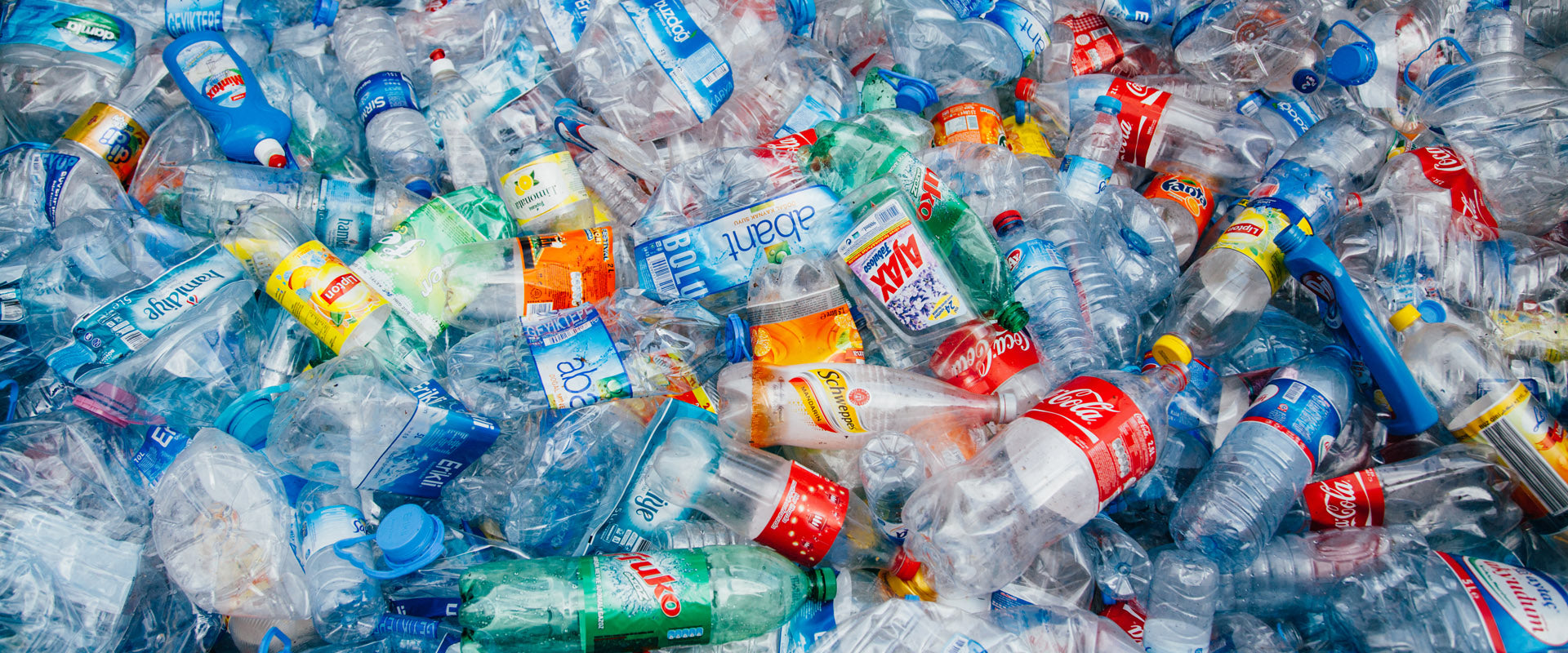Single-use plastic bottles have cramped and clogged our earth. Plastic is everywhere, and we can’t run from it. But, we can take initiative and become responsible consumers.
What's the first thing that comes to mind when you see someone holding a plastic water bottle?
Quick and cheap hydration that you can grab when you're on the go. Yet, another piece of plastic is going to end up polluting the planet. If what popped into your brain was any variation of the first two responses, then you're no stranger to the dilemma that plastic bottles create.
Short-term convenience, on one hand, long term threat to the planet on the other.

Single-use Plastic: A Blessing or A Curse?
You can go to Costco right now and buy a pallet of plastic water bottles. That's 1900, 16.9-ounce bottles, for the cost of 20 cents per bottle. That's like a year and a half of water for one person.
Now, the average American buys more than 300 plastic bottles a year, factor in the rest of the world, and humans use one million plastic bottles per minute.
And if you think recycling is the way to deal with it all, well, we have news for you. Fewer than half the bottles bought in 2019 were collected and recycled, and just 7% of those were turned into new bottles. Instead, most end up in landfills or the ocean.
To deal with this massive problem, lawmakers, activists, businesses, and consumers are wrestling with this question. Should we ban single-use plastic bottles?
Where It All Started?
Since the mid-1800s plastic has existed. Giving us things like the Bakelite telephone, shellac for records, and PVC for pipes. With World War II, scientists began using plastic technology as a support for the war. So after the war, all this plastic needed to go somewhere. The American consumer endured the plastic consumption explosion; Barbie dolls, Swanson TV dinners, Tupperware, everything was plastic. After that, the plastic problem never ended.
The Plastic Curse
It's projected that humans have made more than 10 billion tons of plastic. And it is still here somewhere dumped! You see, plastic doesn't ever biodegrade or completely break down. Over time, it just breaks into smaller and smaller chunks entering oceans, creating a plastic soup of pollution devoured by marine animals like turtles, pelicans, and fish. Research shows that plastic waste will pound for pound outweigh fish in the ocean by 2050.

What Are Lawmakers Doing?
To combat all this, states, cities, countries are making new laws to govern this problem. In 2013, Concord, Massachusetts became the first U.S. city to ban most single-use plastic water bottles. Starting in 2021, the EU banned stuff like plastic plates and straws. Recently, San Diego banned Styrofoam containers. Now, California laws prohibit stores from giving items on single-use plastic film bags to customers.
Dozens of US national parks carried out restrictions on plastic water bottle sales. Those restrictions prevented up to millions of pounds of plastic from being sold and discarded annually. Along with up to 140+ metric tons of harmful emissions.
And, remember, tap water is free, and assuming it's safe to drink where you live, why not get yourself a trendy, reusable thermal insulated water bottle?
Is Reusable Bottle a Good Alternative?
Well, if our butler is not serving us sustainably harvested rainwater from Finland, then we are not interested. You see, a consumer trust fund can never mature, right!
Okay, for real, if that's you, definitely give Buzio’s reusable water bottles a look, we think we can hit it off! Sure if the bottle is full, it can feel like you are carrying around a bowling ball, but it's probably worth the long-term inconvenience.
Is Banning Plastic Bottles the Solution?
Now, we have to admit, banning plastic bottles for ecological purposes feels like a no-brainer to us. But the more you look into it, the more you realize it is not so simple. To start with, in many areas of the world, clean drinking water is only available due to the miracle of single-use plastic bottles, even in the U.S. Look at Flint, Michigan, for years, the lawmakers imposed a state of emergency due to lead contamination in drinking water. If you lived in Flint and had to choose between drinking contaminated water or plastic water bottles, you are surely picking bottled water.
We understand outright bans can have unintended consequences.
What Should I Do?
So the next time you reach for a bottle to quench your thirst, use something that’s modestly sustainable, something that has a lesser carbon footprint, something that can be refined, reused, and repurposed. Understanding your responsibility can make the change you are looking for. Future generations need to see the beauty of Mother Nature. What are we leaving behind for them?









